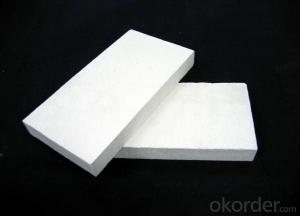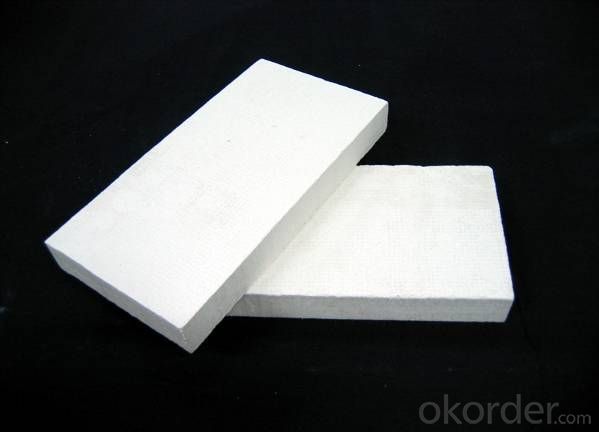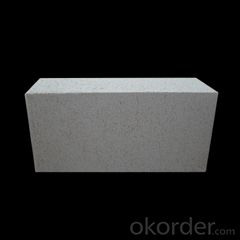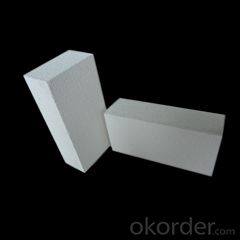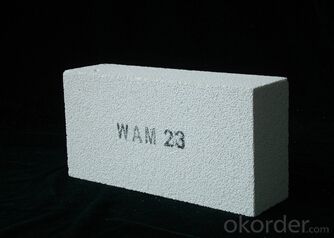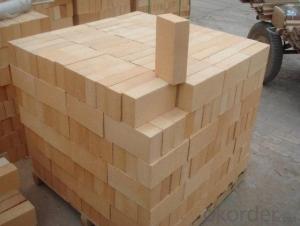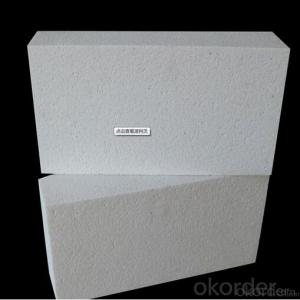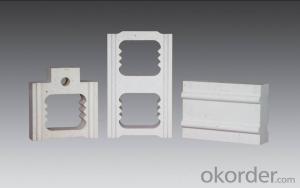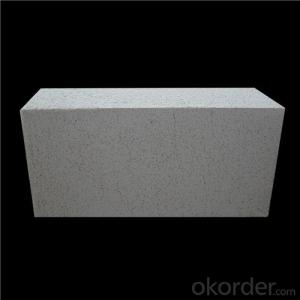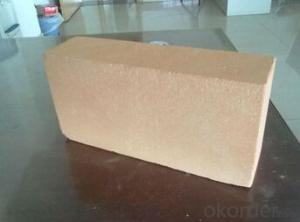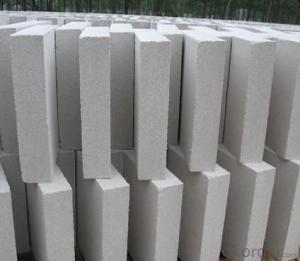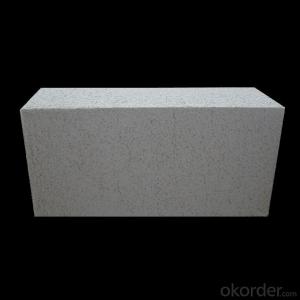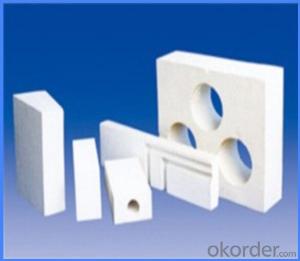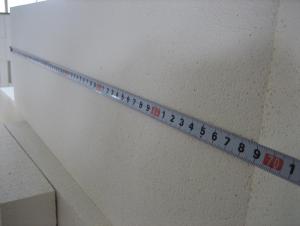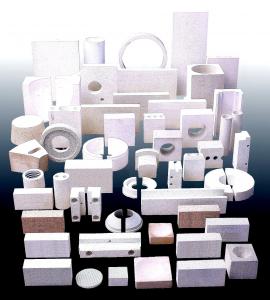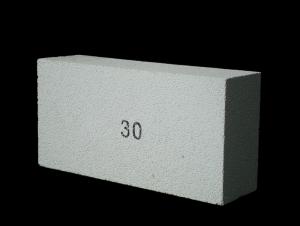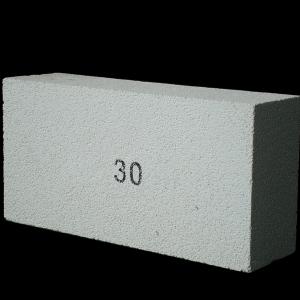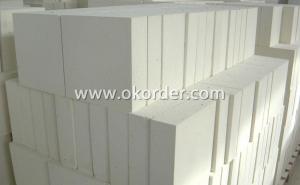Insulating Fire Brick - Refractory JM Mullite Insulation Brick ZDC-32
- Loading Port:
- Shanghai
- Payment Terms:
- TT OR LC
- Min Order Qty:
- 10 m.t.
- Supply Capability:
- 1000 m.t./month
OKorder Service Pledge
OKorder Financial Service
You Might Also Like
Refractory Mullite Insulating Fire Brick JM 23
OKORDER Series Insulating Bricks
OKORDER series insulating bricks are a kind of highly efficient, energy saving, low-carbon, environmental protection advanced products which are manufactured according to ASTM standard. OKORDER series products are the best lining and insulation materials in all types of industrial furnaces in the field of Metallurgy, Aluminum, Petrochemical, Ceramics, Power and Glass. They can be applied as heat insulation or no-melt erosion parts of the working layer. The products have been widely used in the following furnaces and achieved satisfactory results.
Application of Insulating Bricks
Metallurgy industry: Blast furnace, Hot blast stove, Reheating furnace, etc.
Petrochemical industry: Ethylene cracking furnace, Hydrogen production furnace, Primary reformer furnace, Reheating furnace, etc.
Ceramics Industry: Roller kiln, Pusher kiln, etc.
Glass industry: Glass furnace regenerator, etc.
Carbon Industry: Carbon roaster, etc.
Aluminum electrolytic industry: aluminum reduction cells,etc.
Other industries: Tunnel kiln, Shuttle kiln, etc.
Advantages of Insulating Bricks
Low Thermal Conductivity: More porosity brings excellent insulation effect, energy saving.
High Crushing Strength: High crushing strength under thermal state, volume stability.
Low Heat Storage: Little thermal storage when absorb more heat, energy saving effect is obvious.
High Purity: Low content of iron, alkaline and metal impurities.
Accurate Dimension: Precise brick size by machining, cutting and grinding special shapes, expediting bricklaying.
Picture of Insulating Bricks
FAQ
1. Which products do you have?
We have all kinds of refractory brick, castable, mortar, cement, ceramic fiber products, etc.
Or you could browse our products to choose what you need.
2. How do you control the products quality?
With strict quality control system throughout the materials selection and production process, our refractory and ceramic fiber products quality is effectively controlled to meet customer requirements.
From the raw materials selecting, our quality control begin. The quality certificates of raw materials are required and each batch will be tested before using. During production, the quality control are conducted by workers and then each piece will be sorted and examined by quality supervise.
3. Can you give me a brief introduction of the application of your products?
We are mainly specializing in the refractory materials in iron and steel, cement, glass, ceramics, petrochemical, electric power Industry, etc.
4. If I need your offer, what information do you need?
In order to choose suitable products, it will be appreciated to provide us the information, such us specification, technical data, order quantity, products application etc.
If any question, please contact us freely.
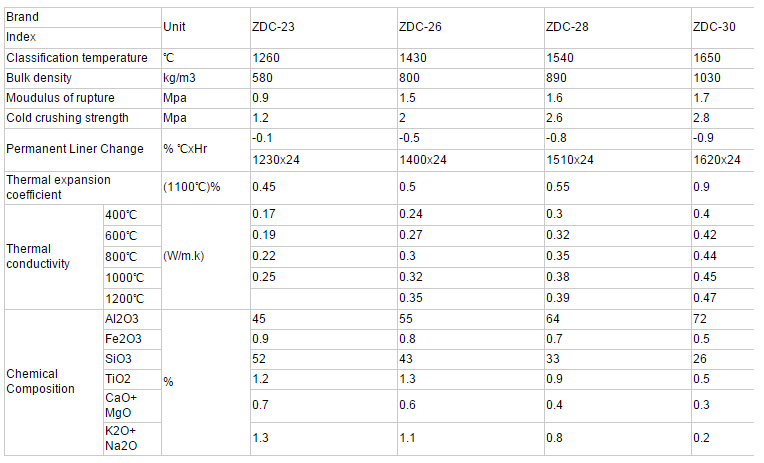
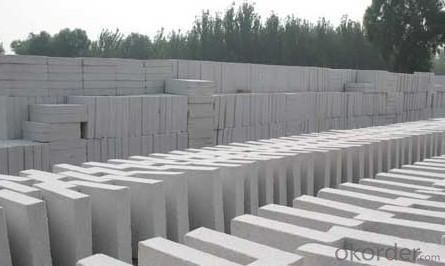
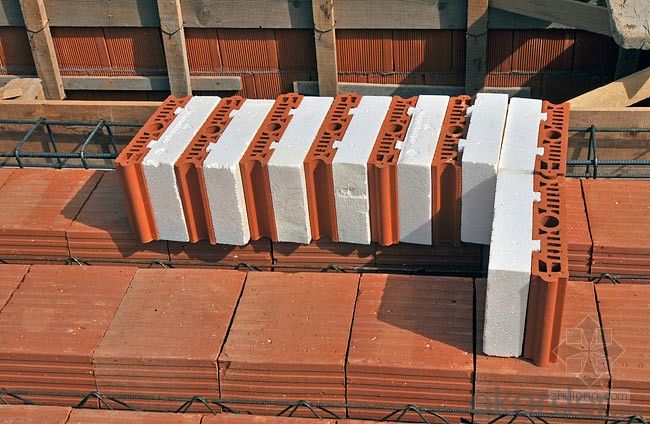
Application:
Insulation brick can be widely used for lining or insulation layers of various industrial furnaces and kilns in metallurgical industry, machine building industry, ceramic industry, chemical industry.
- Q: Can insulating fire bricks be used in the construction of boilers for power plants?
- Yes, insulating fire bricks can be used in the construction of boilers for power plants. Insulating fire bricks are specifically designed to have low thermal conductivity, which allows them to retain heat and prevent energy loss. This property makes them ideal for use in high-temperature applications such as power plant boilers, where efficient heat transfer is crucial for the production of steam and generation of electricity. Additionally, insulating fire bricks are lightweight and have good thermal shock resistance, making them suitable for the demanding conditions found in power plants. Overall, the use of insulating fire bricks in the construction of boilers can help improve energy efficiency and reduce heat loss, leading to increased operational performance and cost savings in power plants.
- Q: Are insulating fire bricks resistant to abrasion or erosion?
- Yes, insulating fire bricks are resistant to both abrasion and erosion.
- Q: Can insulating fire bricks be used for high-temperature insulation?
- Yes, insulating fire bricks can be used for high-temperature insulation. These bricks are specially designed to withstand extreme temperatures, making them suitable for insulation in applications such as kilns, furnaces, and fireplaces. They have excellent thermal conductivity and can effectively reduce heat loss, making them an ideal choice for high-temperature insulation needs.
- Q: Can insulating fire bricks be used in wood-fired kilns?
- Yes, insulating fire bricks can be used in wood-fired kilns. These bricks are designed to withstand high temperatures and provide excellent insulation, making them ideal for wood-fired kilns. They help to retain heat and distribute it evenly throughout the kiln, ensuring efficient and consistent firing of the wood. Additionally, insulating fire bricks are lightweight, which can aid in the construction and maintenance of the kiln. Overall, using insulating fire bricks in wood-fired kilns can enhance their performance and efficiency.
- Q: Can insulating fire bricks be used in heat treatment furnaces?
- Indeed, heat treatment furnaces can make use of insulating fire bricks. These bricks are specifically engineered to possess a low thermal conductivity, enabling them to endure elevated temperatures while minimizing the dissipation of heat. This quality renders them ideal for deployment in heat treatment furnaces, where the preservation of a stable temperature is vital for the triumphant execution of the heat treatment procedure. Moreover, insulating fire bricks exhibit exceptional insulating attributes, thereby curtailing energy usage and enhancing the overall efficiency of the heat treatment furnace. Consequently, the utilization of insulating fire bricks in heat treatment furnaces is a prevalent practice across diverse industries.
- Q: Can insulating fire bricks be used for insulation in hot water tanks?
- Indeed, insulating fire bricks are suitable for insulating hot water tanks. Their superior thermal insulation properties deem them an optimal selection for such purpose. By utilizing these bricks, heat loss from the hot water tank can be efficiently prevented, consequently prolonging the water's temperature retention. Furthermore, these bricks exhibit exceptional durability and can endure high temperatures without fracturing or shattering, rendering them a dependable option for hot water tank insulation.
- Q: Do insulating fire bricks absorb moisture?
- No, insulating fire bricks do not absorb moisture. These bricks are made from materials that are resistant to moisture absorption, such as high-alumina or silica. This makes them ideal for applications where moisture resistance is required, such as in high-temperature environments or when used as insulation in fireplaces or kilns. The non-absorbent properties of insulating fire bricks help to maintain their structural integrity and insulation performance over time, even in humid conditions.
- Q: Can insulating fire bricks be used as insulation for pizza ovens?
- Yes, insulating fire bricks can be used as insulation for pizza ovens. Insulating fire bricks are designed to withstand high temperatures and provide excellent thermal insulation. These bricks have low thermal conductivity, meaning they can effectively retain heat and prevent it from escaping the oven. This helps in maintaining a consistent and high temperature inside the pizza oven, allowing for even cooking and crisp crusts. Insulating fire bricks are also lightweight and easy to install, making them a popular choice for insulating pizza ovens.
- Q: Can insulating fire bricks be used in the construction of kilns?
- Yes, insulating fire bricks can be used in the construction of kilns. Their high insulating properties help to retain heat and improve energy efficiency in the kiln, making them a popular choice for lining the walls and floor of kilns.
- Q: Can insulating fire bricks be used in refractory coatings?
- Yes, insulating fire bricks can be used in refractory coatings. They provide excellent thermal insulation properties and can help in maintaining high temperatures while minimizing heat loss.
Send your message to us
Insulating Fire Brick - Refractory JM Mullite Insulation Brick ZDC-32
- Loading Port:
- Shanghai
- Payment Terms:
- TT OR LC
- Min Order Qty:
- 10 m.t.
- Supply Capability:
- 1000 m.t./month
OKorder Service Pledge
OKorder Financial Service
Similar products
Hot products
Hot Searches
Related keywords
